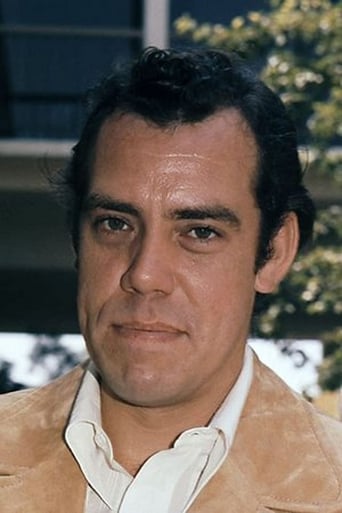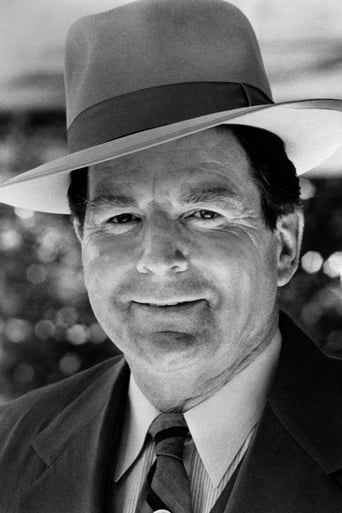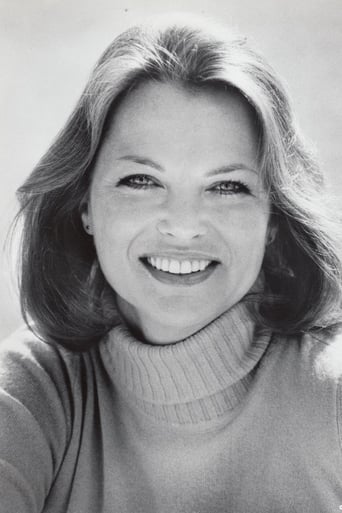Stevecorp
Don't listen to the negative reviews
Console
best movie i've ever seen.
Forumrxes
Yo, there's no way for me to review this film without saying, take your *insert ethnicity + "ass" here* to see this film,like now. You have to see it in order to know what you're really messing with.
Francene Odetta
It's simply great fun, a winsome film and an occasionally over-the-top luxury fantasy that never flags.
Richard Burin
Robert Altman was a busy boy in the early '70s, gleefully destroying the mythology of cherished genres with the enthusiasm of a little kid with a toy hammer. When he made a Western (McCabe & Mrs. Miller), his hero was a bearded pimp wandering a snow-covered land of Leonard Cohen songs and near-inaudible dialogue. When he turned his hand to film noir (The Long Goodbye), it was to introduce a scruffy, shambling Philip Marlowe whose messy hair matched his messy mind - and who couldn't even con his cat into eating an inferior brand of food. Thieves Like Us, released the next year, was something of a departure: less doggedly contrarian, with its aspects of realism allied to a certain heightenedness in style and atmosphere that smelled like folklore-fashioning.The film is an adaptation of a 1937 Edward Anderson novel, filmed previously in 1949 as They Live by Night, director Nicholas Ray's brilliant debut and one of the most vivid evocations of young love - and Depression-era desperation - ever put on film. While the first movie made excuses for its desperate protagonist (Farley Granger), here murderer Keith Carradine has no regrets (except that he's never pitched pro-ball) and no intention of leaving behind his life of crime with two older desperadoes, despite having found love. This is a tougher film to fall for, then, but an easy one to admire.Beginning with a shot of chain-gang convicts rumbling past on the rails, Altman effortlessly conjures a world of poverty, dirt and hopeless aspiration, shoving bottles of Coke into every scene and soundtracking his film with almost ever-present radios, playing light entertainment shows, crime serials, news broadcasts and political speeches. Occasionally it's too heavy-handed (the Romeo and Juliet sex scene, with its repetitive refrain), but more often it's perfectly-judged. The film follows the trio from the aftermath of their prison escape to their bullet-riddled fate, contrasting their presentation in the press with the less exciting, but more intriguing reality. In the midst of all that, there's time for numerous superb vignettes (the '36th robbery' being the highlight) and a touching romance between Carradine and gas-station attendant's daughter Shelley Duvall.For those who only know Duvall as the perpetually-screaming would-be-victim of a large portion of ham (Jack Nicholson) in Kubrick's The Shining - which I seem to be alone in thinking is actually quite a poor film - this should be something of an eye-opener. For the first seven years of her career, Duvall appeared only in the films of Altman, evincing a rare kind of magic in her rich and sensitive characterisations. She's wonderful again here: needy, adoring and appealing. Her defining moment is a scene where a lesser performer could have blown it all, as she shifts from scorned fury ("You lied. Liar!") to longing and a desire for affirmation, cradling Carradine's head as he sits motionless on the bed. Carradine himself has been lacklustre more often than he's been impressive, but he did some of his best work for Altman (most notably in the following year's Nashville) and is extremely effective in a role that suits him well. John Schuck and Bert Remsen also do strong work as his partners in crime, though the pick of the supporting cast is Louise Fletcher (One Flew Over's Nurse Ratched), excellent as a put-upon relation sheltering the titular thieves.In many ways, Altman was the key American director of the period, the one who both created and seized upon the unique opportunities of the period, realising the zeitgeist and pioneering its most important innovations, like overlapping dialogue and labyrinthine, novelistic narratives. Co-scripting here, he nails the period and the significance of this story, while throwing in some left-field touches that you'd swear were Coen brothers originals, leaving much of the main action sequences off the screen, and showing the crooks drawing straws to see who drives the getaway car... then deciding that's not going to work. It's a completely different take on Anderson's novel than They Live by Night, but just as incisive, rewarding and memorable.
secondtake
Thieves Like Us (1974)I really like most Robert Altman Films, but I never quite love any of them, even famous films like "MASH" or "Short Cuts." And "Thieves Like Us," which is a kind of loose remake of a favorite of mine, "They Live by Night" (1949, Nicholas Ray), is another really enjoyable, well made movie that lacks some kind of edge--creative, aesthetic, social, something--to set it off as remarkable and fresh. You might get the most out of this by just settling in and enjoying it, a plot that purposely lacks some of the high romance of, say, "Bonnie and Clyde" or some other outlaw-on-the-run movie. But if you do see the earlier Ray version, which is based on the same novel, you'll at least notice the way movie production has changed from the great Hollywood years of the 1930s and 40s to the New Hollywood inventions of the late 60s, early 70s. This movie lacks the sheer beauty of the first, the perfection, made possible by studio shooting. Here, it is all location work (in Mississippi), which adds authenticity and atmosphere, but which also keeps it from the kind of tight control of a typical 40s film. Another difference might simply be that this is a Altman movie and the other is by the inimitable Ray, who was able to fill his characters with humanity and heart, and so even lesser known actors (all of them) come alive fully. Altman's characters have all the quirks and nuances of real people, and though it doesn't feel a bit like a documentary, you do have a feeling that none of this rises above. It is meant to be grounded in a kind of realism that gives it authenticity over heightened drama. It's a choice I appreciate, even if it sometimes deadens the film.The plot is important for how it makes bank robbers as ordinary as you or me (hence the title). The augment to this is that we are supposed to identify with them--or by a stretch, we could picture ourselves doing the same thing. But that's just not true. The robbers seem very regular and normal, but they also seems selfish and stupid. They plow ahead regardless of better options. And it's too often about money--money they never actually use (they live in squalor) or know how to dream about using (they have few dreams, in fact). The leading couple here does have a romance, and it's truly touching, but also tragic. Altman can't help but pull a "Bonnie and Clyde" ending, of sorts (slow motion violence) but it feels hard and nasty. Maybe it's supposed to, a reaction to police authority appropriate for 1974.So what do we really have? A substantial, well made, restrained movie that plays a little too much by the book--the new book, the New Hollywood book, but a little timid cinematically.
moonspinner55
Down South during the Depression, two wily crooks and a young man convicted on murder charges break out of prison and hole up at a rural truck stop. Robert Altman directed and co-adapted this second film version of Edward Anderson's book (previously made in 1948 as "They Live By Night"), and he's obviously in love with the damp, grubby milieu and characters. He gets some wonderful work from then-newcomers Keith Carradine and blithe, earthy Shelley Duvall, yet fails to drum up interest in the narrative. The trio take part in bank robberies but never raise much hell, while the interrelationships between the criminals and their familiars are so matter-of-fact that nothing comes along to surprise us. The screenplay (also worked on by Altman's associate Joan Tewkesbury and, for a brief time, Calder Willingham) is talk-heavy with lackadaisical dialogue; all the gabbing may indeed have the ring of natural conversation, but it mutes the film's pacing. The frequent radio broadcasts, vintage costumes and cars are fun ingredients initially, but with such a drab presentation (and hardly any light relief) one is apt to become restless with the lack of drive. Altman probably didn't want bold, vivid colors from cinematographer Jean Boffety, but what he did get--muddy-wet roads and paint-chipped old houses--is far too gloomy. The filmmaker takes his precious time presenting each scene, enjoying himself no doubt, but interest in these seedy lives is extremely limited. *1/2 from ****
flyingcandy
Lackadaisically effective remake of Nick Ray's "They Live By Night", a handsome 1950s film noir where the characters, although played by some terrific actors, always seem ready to break into song, this is to that film what "The Long Goodbye" is to "The Maltese Falcon"... turning slow-burn cool into an idle handed, haltingly-paced, shaggy Devil's playground. Keith Carradine turns in a flighty, dazed, yet realistically down-home performance as the boyish escaped-convict sandwiched between two older, and in some ways, more experienced criminals. It would be hard to take the two side baddies, played by John Schuck and Bert Remsen, very seriously if they were cast as tough guys in a tough guy film to begin with. All three are desperate, pathetic losers who rob banks for a quick buck - one of them, Schuck, happens to be quite dangerous when cornered. The dialog between the trio are like grownup kids stuck in an endless detention class (i.e. prison). And Shelley Duvall's moll, unlike the first film's beauty (played by an actress who's more gorgeous than corn-fed/homely), is really a side character, used prominently in the second half after Carradine's injured in a car wreck. And while their chemistry lacks the instantly-driven-spark of the original, it's nice to have the romantic aspect - more accidental than staged - tucked in the backseat where (I feel) it belongs. But the most effective element isn't the acting, or Robert Altman's ever-gliding camera-work, but the radio programs, like "The Shadow", playing in the background throughout, providing a subliminal narration dictating events such as the crooks robbing their banks - which we only see from the outside two out of three times - or the programs running during the downtime, between bank jobs; all these scenes which can seem quite boring to anyone expecting an actual gangster film, but is what, in my opinion, makes this anti-gangster picture click. And is why I prefer it to the original. Beautifully-shot melodrama is replaced with an uncontrived, purposely sloth-toed tale about what (unconventionally-cast) criminals do when they're not doing bad things. And Louise Fletcher, as Remsen's relative who allows the men to stay in her house, gives a subtly-sly performance you have to watch a few times before fully realizing she's more than just filler.






